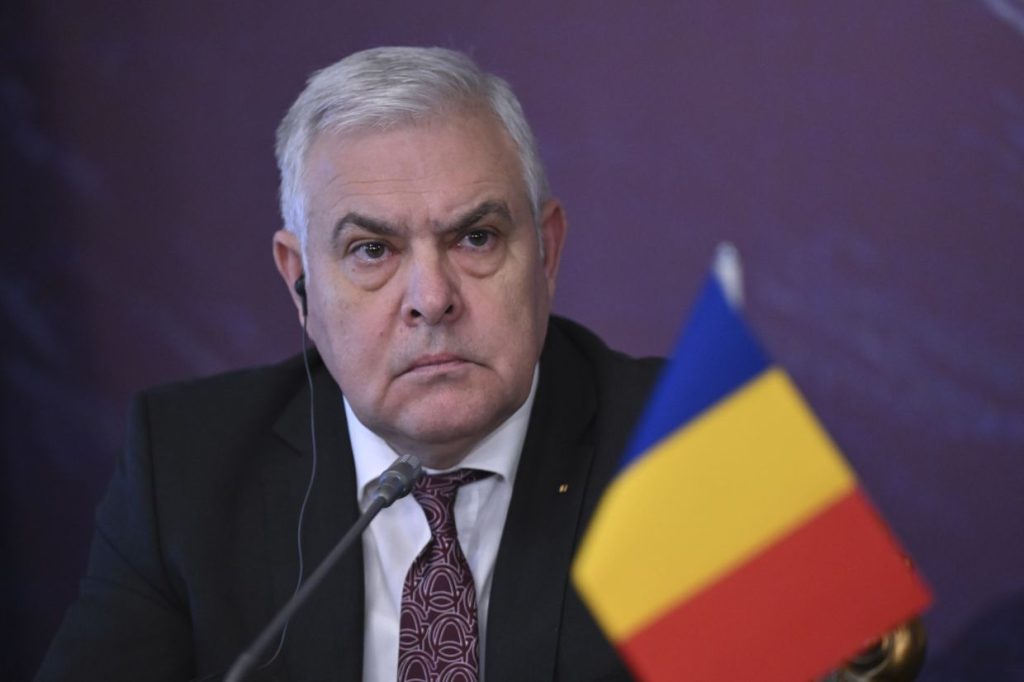Romania has called for a “robust and coordinated” response by NATO to address Russian drones violating allied airspace during attacks against Ukraine. The Defense Minister of Romania, Angel Tilvar, emphasized the need for enforcing rotational air defense and integrated anti-missile models to counter these threats. Several instances of drone wreckage near the border with Ukraine have been discovered by Romanian authorities, with similar airspace violations reported in Moldova, Latvia, and Poland. However, none of these countries attempted to intercept the Russian projectiles, raising concerns about the escalating tensions along NATO’s borders.
The Bucharest Nine (B9) format, which includes Central and Eastern European NATO and EU members like Romania, Bulgaria, Hungary, Slovakia, Czechia, Poland, Lithuania, Latvia, and Estonia, discussed the repeated incursions of Russian drones and missiles into NATO airspace during a recent meeting in Bucharest. Tilvar expressed deep concerns about these incidents, highlighting the need for a coordinated response at the allied level. The growing threats in the Black Sea region, particularly related to Russia’s hybrid warfare, disinformation, and cyber attacks, were also discussed during the meeting. The B9 group emphasized the importance of supporting Ukraine to ensure the Ukrainian Armed Forces have the necessary resources on the front lines.
Romania has been a strong supporter of Ukraine throughout the full-scale war, providing various forms of assistance, including artillery, armored vehicles, ammunition, and training for Ukrainian pilots on F-16 fighter jets. Additionally, Romania has pledged to deliver a Patriot air defense system to enhance Ukraine’s defense capabilities. Ukraine’s Foreign Minister, Andrii Sybiha, visited Romania as part of his European tour, expressing gratitude for Romania’s steadfast support in the face of Russian aggression. The Romanian Foreign Ministry condemned Russia’s recent attack on a cargo ship carrying Ukrainian grain in the Black Sea, labeling it as an unprecedented escalation of Moscow’s war efforts.
The situation in the Black Sea region remains a cause for concern, with Russia’s aggressive actions posing a threat to regional stability. The B9 format, consisting of Central and Eastern European NATO and EU members, is advocating for a united response to address the airspace violations by Russian drones and missiles. By enforcing rotational air defense and integrated anti-missile models, these countries aim to enhance their defenses against potential threats from Russia. The support for Ukraine, both in terms of military assistance and diplomatic backing, is crucial in countering Russian aggression and maintaining peace and security in the region.
The B9 meeting in Bucharest underscored the need for a coordinated approach at the allied level to address the evolving threats in the region, particularly those stemming from Russia’s hybrid warfare tactics. By working together and supporting Ukraine in its defense efforts, the member states are positioning themselves to counter any potential threats effectively. Romania’s commitment to providing assistance to Ukraine and condemning Russia’s aggressive actions demonstrates its dedication to upholding regional security and stability. As tensions continue to escalate, the cooperation among NATO members becomes increasingly important in deterring further aggression and maintaining peace in the region.
In light of the recent incidents involving Russian drones and missiles violating NATO airspace, the B9 member states are calling for a unified response to tackle these security challenges. By enhancing their air defense systems and collaborating closely with NATO allies, the Central and Eastern European countries aim to strengthen their collective defense capabilities. The ongoing support for Ukraine, both in terms of military aid and diplomatic solidarity, plays a pivotal role in countering Russian aggression and fostering regional stability. It is essential for the international community to stand united against any attempts to destabilize the region and uphold the principles of sovereignty and territorial integrity.














